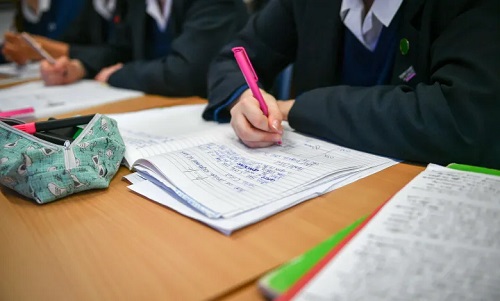
A new research has revealed that Half of schoolchildren who do not pass their maths and English GCSEs were already judged to be behind on their education at the age of five.
A fifth of all students in England, or around 100,000 pupils each year, do not achieve the grade 4 pass grade in both English language and maths.
“The forgotten fifth of pupils leaving school lacking basic English and maths skills is one of education’s biggest scandals,” Professor Lee Elliot Major, co-author of the research paper, said.
Responding to the findings, shadow education secretary Bridget Phillipson accused the Conservatives of “failing our children” by making early years support “increasingly unavailable and unaffordable”.
The government has set out a plan for 90 per cent of children to reach the expected standards in reaching, writing and maths by 2030, a spokesperson for the Department of Education said.
Researchers from the University of Exeter and UCL used data from the UK Millennium Cohort Study to map the educational trajectories of 11,524 students born in England in 2000-2001, who then went on to take their GCSEs in 2016 or 2017.
They presented their findings on Thursday in a working paper, which has not yet been peer-reviewed.
The academics found that 18 per cent, or a fifth, of teenagers failed to achieve a grade 4 in both English language and maths. Of those students, just under half (48 per cent) had not reached expected levels of numeracy and literacy at the age of five.
More than one in four of them, 28 per cent, had been assessed as “delayed” in their learning at the age of three.
Since their first survey when they were nine months old, the children were followed up six times between the ages of three and 17 – providing regular assessments of how they were doing in school.
The paper found that children who were assessed as not being “school ready” at age three, and who were below expected standard levels at age five and age 16, often had similar family backgrounds.
At each age, children identifying as struggling were twice as likely to be born to a teenage mother (13 per cent compared to 5 per cent) and to be living with a single parent (24 per cent to 10 per cent). They were also three times as likely to be living in a workless household (33 per cent to 11 per cent).
These children were also three times as likely to have parents with no or poor education qualifications. Their home was also more likely to be rented, overcrowded, damp, or situated in poorer areas, compared to their peers.
They were also less likely to be female (39 per cent to 53 per cent) and were less likely to be a firstborn child (37 per cent to 44 per cent). Children who were born in the summer months were also more likely to do worse academically, with five-year-old underachievers twice as likely to be a summer baby than not.
Early years educational disadvantage was associated with being Black, Asian or minority ethnic and living in a home where an additional language (other than English) was spoken. However, this setback was reversed as the children grew up.
Not attaining a grade 4 or higher GCSE in English language and maths was associated with being white and only English being spoken in the home.
The forgotten fifth of pupils leaving school lacking basic English and maths skills is one of education’s biggest scandals
